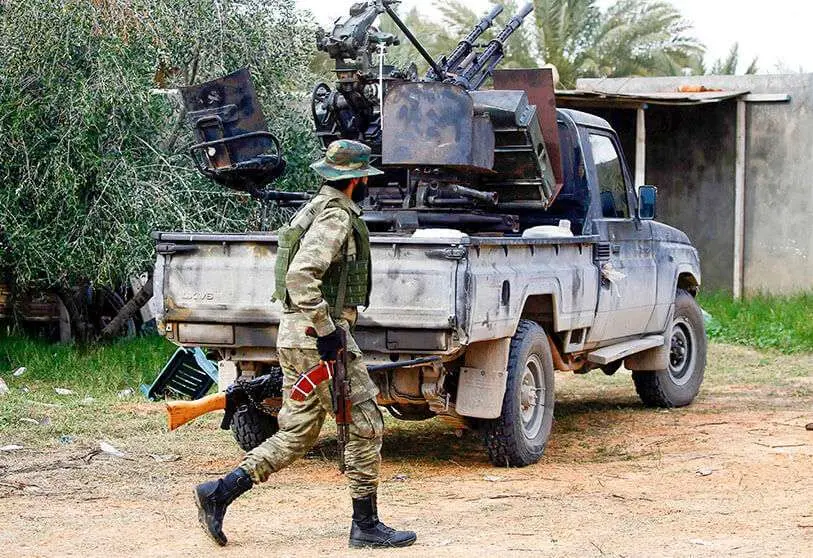Fighting in Tripoli over Prime Minister Fathi Bashagha's entry into the city

Fathi Bashaga announced his arrival in the Libyan capital of Tripoli on Tuesday morning through his press office and some social networks. In a video recorded in the city, Bashagha made clear his intention to start work as soon as possible as Libya's prime minister. Hours later, the politician had to leave the city after the outbreak of urban fighting.
"Praise God, we arrived safely and securely in the capital. The reception was excellent," Bashagha said in the video from the headquarters of the Eighth Force militia, also known as the Al-Nawasi Brigade. Militia leaders supported the entry of the Tobruk parliament-appointed prime minister.

Bashagha's arrival in Tripoli was not so well received by all. The first to make this known were the fighters of an anti-Bashagha militia, Brigade 444. Accompanied by some other paramilitary elements, according to communiqués made by the actors involved and AFP reports, Brigade 444 started fighting to make Bashagha and his Al-Nawasi collaborators back down.
The fighters achieved their objective, and Fathi Bashagha and his team left Tripoli within hours of announcing their arrival. The "incoming" prime minister later issued a statement in which he deeply regretted the escalation of violence, and stated that he took the decision to leave Tripoli to avoid any unnecessary bloodshed.
1/4 رغم دخولنا السلمي للعاصمة طرابلس دون استخدام العنف و قوة السلاح و استقبالنا من قبل أهل طرابلس الأفاضل ، فوجئنا بالتصعيد العسكري الخطير الذي أقدمت عليه مجموعات مسلحة تابعة للحكومة منتهية الولاية.
— فتحي باشاغا Fathi Bashagha (@fathi_bashagha) May 17, 2022
Reactions from other political actors in Libya were swift. UN Special Envoy Stephanie Williams, who a few days earlier had welcomed the progress made in the second round of negotiations in Cairo between the Tobruk and Tripoli governments, immediately condemned the escalation of tensions and the militias' belligerent stance.
The leader of the Tripoli-based High Council of State, Khaled al-Mashri, condemned "in the strongest terms" the armed clashes that took place in the morning in Tripoli, according to EFE news agency.

From Brussels, the European Union's High Representative for Foreign Affairs, Josep Borrell, also made a statement condemning the clash between supporters of Bashagha and Dbeibé. "In Libya we don't have elections, but we have two governments. Instead of having elections to have one government, they don't have elections and they have two governments, and sooner or later, when there are two governments, they clash", said the European leader on his arrival at the meeting of European Union Defence Ministers.
For months, Bashagha has been trying to seize political power in a country divided in two. Opposing him is Dbeibé, the UN-backed acting prime minister, who will not let go of the reins despite an order from parliament. Dbeibé's conditions for relinquishing power are to hold democratic elections. Elections are one of the UN's greatest trump cards for restoring stability in the country. Experts in the region, such as Kelly Alkhouli, political consultant and director of the Centre for Foreign and Political Affairs, believe that holding elections in Libya is not the key to resolving the situation in the country.
Bashagha's attempt to enter Tripoli is curious, especially after it emerged that the Tobruk parliament expressed its desire to see its government work from Sirte, rather than Tripoli. Bashagha may be trying to pull the strings in Libya, as opposed to Dbeibé's status quo, and position himself not as an aggressor, but as a figure of dialogue and peace, as he has already done by appealing for calm and a return to Crescent Oil's oil operations.








